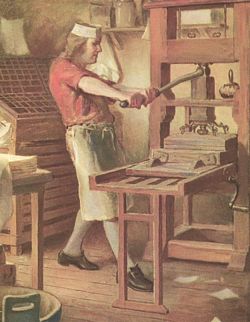
At age 18, Franklin traveled to London to acquire some equipment for establishing a new newspaper in Philadelphia. However, the sponsor soon withdrew from the project; so a disappointed Franklin remained in London working as a typesetter. In 1726, at age 20, he decided to return to Philadelphia to strike out on his own.
Benjamin Franklin’s Organized Action Plan for Efficiency and Success
At the threshold of adulthood, Franklin ruminated on the kind of man he wanted to be. During his time in London, he was deeply unhappy that his life had so far been disorderly because he had never outlined a design for how to conduct himself. During his 11-week voyage from London to Philadelphia, he applied his methodical mindset to develop some rules for self-improvement and called them his “Plan of Conduct.”
Those who write of the art of poetry teach us that if we would write what may be worth the reading, we ought always, before we begin, to form a regular plan and design of our piece: otherwise, we shall be in danger of incongruity. I am apt to think it is the same as to life. I have never fixed a regular design in life; by which means it has been a confused variety of different scenes. I am now entering upon a new one: let me, therefore, make some resolutions, and form some scheme of action, that, henceforth, I may live in all respects like a rational creature.
- It is necessary for me to be extremely frugal for some time, till I have paid what I owe.
- To endeavor to speak truth in every instance; to give nobody expectations that are not likely to be answered, but aim at sincerity in every word and action—the most amiable excellence in a rational being.
- To apply myself industriously to whatever business I take in hand, and not divert my mind from my business by any foolish project of growing suddenly rich; for industry and patience are the surest means of plenty.
- I resolve to speak ill of no man whatever, not even in a matter of truth; but rather by some means excuse the faults I hear charged upon others, and upon proper occasions speak all the good I know of every body.
These first few pursuits of self-improvement and reflection weren’t a passing fad for Franklin—he adhered to these rules for the rest of his life. He was proud that he had the wisdom to develop and commit to them so early in life. He reflected in his “Autobiography” (1791,) “It is the more remarkable, as being formed when I was so young, and yet being pretty faithfully adhered to quite through to old age.”
Idea for Impact: Create Your ‘Plan of Conduct’
Create your own rules for living and commit to them for a life of success and wisdom. The values you establish for yourself will align your actions with your goals and dreams and so reduce regrets of overlooked opportunities.
Recommended Reading: For a great collection of the writings of Benjamin Franklin, including his “Autobiography”, see Walter Isaacson’s “A Benjamin Franklin Reader”.